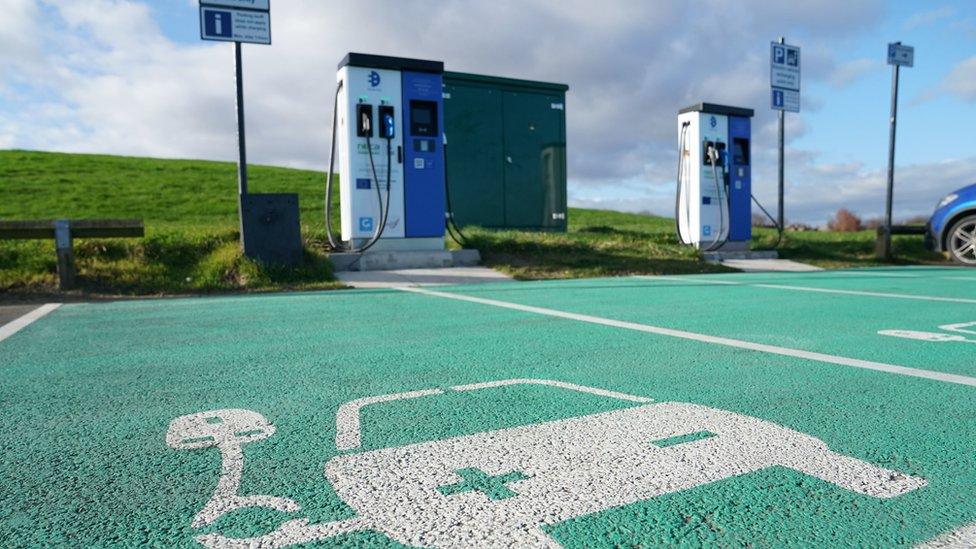'Historic' climate bill due before NI Assembly
- Published
- comments

Electric cars will have to become the norm within the next decade
Supporters of NI's first climate bill, which is to be introduced to the Assembly on Monday, have described it as an "historic moment".
If passed, the legislation will set a binding target of net zero carbon emissions by 2045.
It also suggests measures to address water quality and biodiversity loss.
It was drafted by a group of environmentalists and academics and is being taken forward as a private members bill.
But it has significant cross-party support and backers believe they have the numbers to get it passed.
Climate Coalition NI helped draft the bill. Its chairperson Dr Amanda Slevin said it was the first opportunity MLAs would have to consider a comprehensive piece of climate legislation.
"The assembly has a responsibility to deliver on an ambitious Climate Act that represents our best collective efforts to secure a safe, healthy and sustainable future for our children, young people and future generations," she said.
Until now, Northern Ireland has been the only part of the UK without its own climate legislation, though it is contributing to wider UK reduction targets.
The legislation being introduced on Monday was drafted by an organisation called Climate Coalition NI and is being taken forward in the name of Green Party leader Clare Bailey.
It has the backing of Sinn Féin, the Ulster Unionists, Alliance, the SDLP along with a number of independents - only the DUP has not signed up.
That means it should have the necessary political support to facilitate its passage through the various stages.
Monday is the first reading of the bill, a technical stage which sees its formal introduction to the assembly.

The first major test will be the second reading when MLAs get to debate the bill and vote on whether it progresses to committee stage for detailed examination.
There is likely to be much discussion around the level of the proposed cuts and the date by which they are to be achieved.
Last year, the government's climate advisory body, the Committee on Climate Change, suggested an 82% reduction by 2050 would be an equitable contribution for Northern Ireland to the UK's net zero ambition.
It said the economic reliance on agriculture, Northern Ireland's biggest emitting sector, would make it difficult to go further and faster without a significant reduction in agricultural output.
Last week, an assembly scrutiny committee was told that the officials hoped to have draft proposals for the department's climate bill ready for executive consideration shortly.
Related topics
- Published28 May 2020
